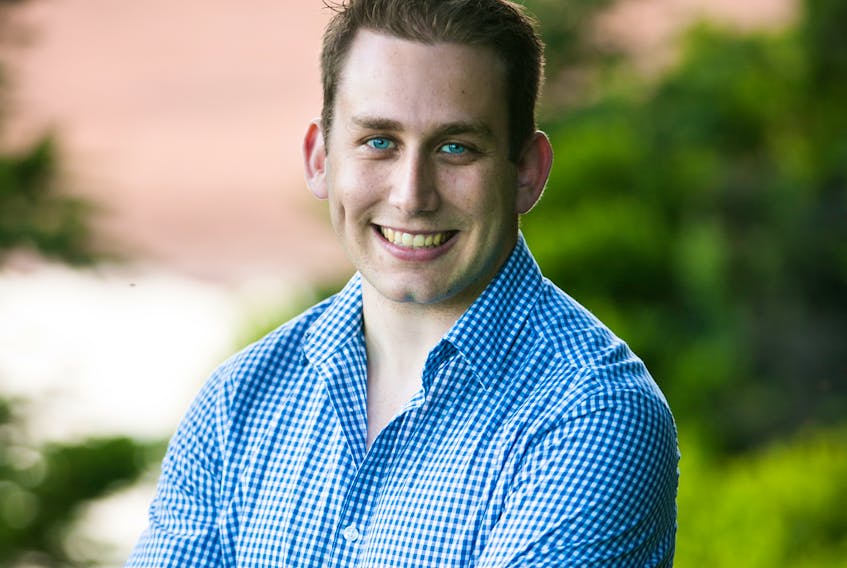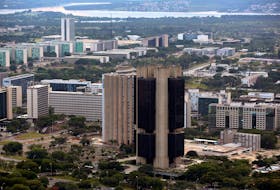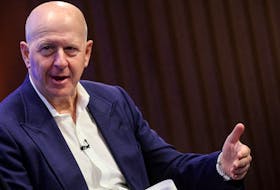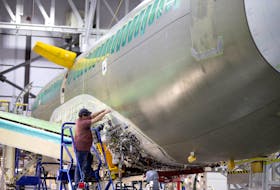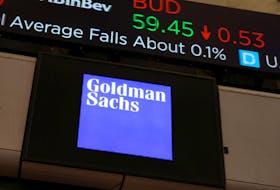Charlottetown’s Andrew Cameron wants to set himself apart from other scientists by learning how to be an entrepreneur and launch his own startup company.
“In science, usually the path is to try to get the graduate degree and then get in with some good researchers and build your C.V. (curriculum vitae) that way. If you ever want to do the industry thing, you can kind of branch out at any time,” said Cameron, 21, who is participating in this year’s The Next 36 program.
Cameron graduated from UPEI last year with a degree in physics, and is now attending the University of Waterloo working towards a PhD in physics.
The Next 36 program, launched in 2010, is offered by the Toronto-based non-profit organization NEXT Canada. The program provides participants with course instruction, mentorship and up to $80,000 in seed capital for their business venture.
“We’ve got over 300 of Canada’s top business leaders, investors, entrepreneurs and mentors that they’ll get to work with and network with throughout the program as they build their company,” said Jon French, NEXT Canada’s director of marketing and communications.
“It’s got elements of an accelerator or an incubator program for startups.”
He added that the program has no formal age requirements. But usually, participants are under 30 years old and are university or college students or recent graduates.
“We pick 36 individuals from across Canada. We’re program agnostic. We don’t care what school they come from or what program they’re studying,” French said.
“But they’re impressive across a number of different metrics. And, they’re interested in building something big, not a small business in Charlottetown or Toronto or Vancouver. They want to build something that is global and disruptive and we give them the tools to do that.”
The eight-month program involves a summer “boot camp” in Toronto with course offerings in business, entrepreneurship, strategy and finance taught by faculty from institutions such as the University of Toronto, Massachusetts Institute of Technology (M.I.T.), Harvard Business School and Georgetown University.
French said a motivation for starting the program was the recognition that Canada was losing some of its young top talent to the U.S. or other countries. As well, the program founders wanted to change the mindset of young, high-potential entrepreneurs to think big.
Cameron, also a Colonel Grey High School graduate, was accepted into the program after attending a weekend interview session in Toronto last month with 80 other candidates.
“They mark everything you do for the weekend. And then they put 36 names on a white board. Half the people just leave, and there was another day of business training,” he said.
Two other Atlantic Canadians – Emily Bland of Newfoundland and Ross Arsenault of Nova Scotia – have also made the final 36. Bland is a commerce graduate from Memorial University and Arsenault has a commerce degree from Saint Mary’s University.
The program has industry partnerships, including national funding partnerships with EY, Osler and The Power Corporation of Canada. The federal government provides some funding for operations, French said.
NEXT Canada also has an equity stake in the new businesses that allows for investment back into the operations of the Next 36 program when the shares are cashed out.
“It’s kind of a neat model in that way as well that the long-term goal is to be self-sustaining, just through the successes of the companies that go through the program,” he said.
Cameron got the idea to try out for the program from Jason Pearson, a chemistry professor at UPEI. Pearson recently went through another NEXT Canada program called Next Founders and gave Cameron a referral for the program.
Cameron said he is still working out the details of his business idea and is still in the “mingling phase” in terms of forming partnerships and a team.
“Whether or not the business in this program is successful, whenever I do a PhD in the future and if I’m lucky enough to come across people with a business idea, it would be a really powerful thing to have gone through – this experience. And, there are a lot of business skills that I wouldn’t even know that I don’t know. When you go through school purely science, it’s hard to pick that stuff up,” Cameron said.
French said about 60 per cent of the participants or graduates of the program are like Cameron, with a STEM (science, technology, engineering and mathematics) background.
“They’re learning about valuing their business or negotiating with an investor or growing a sales team. And, it’s the kind of training or education that you don’t get when you’re in an engineering or a computer science program. So, you get that part for sure.”

